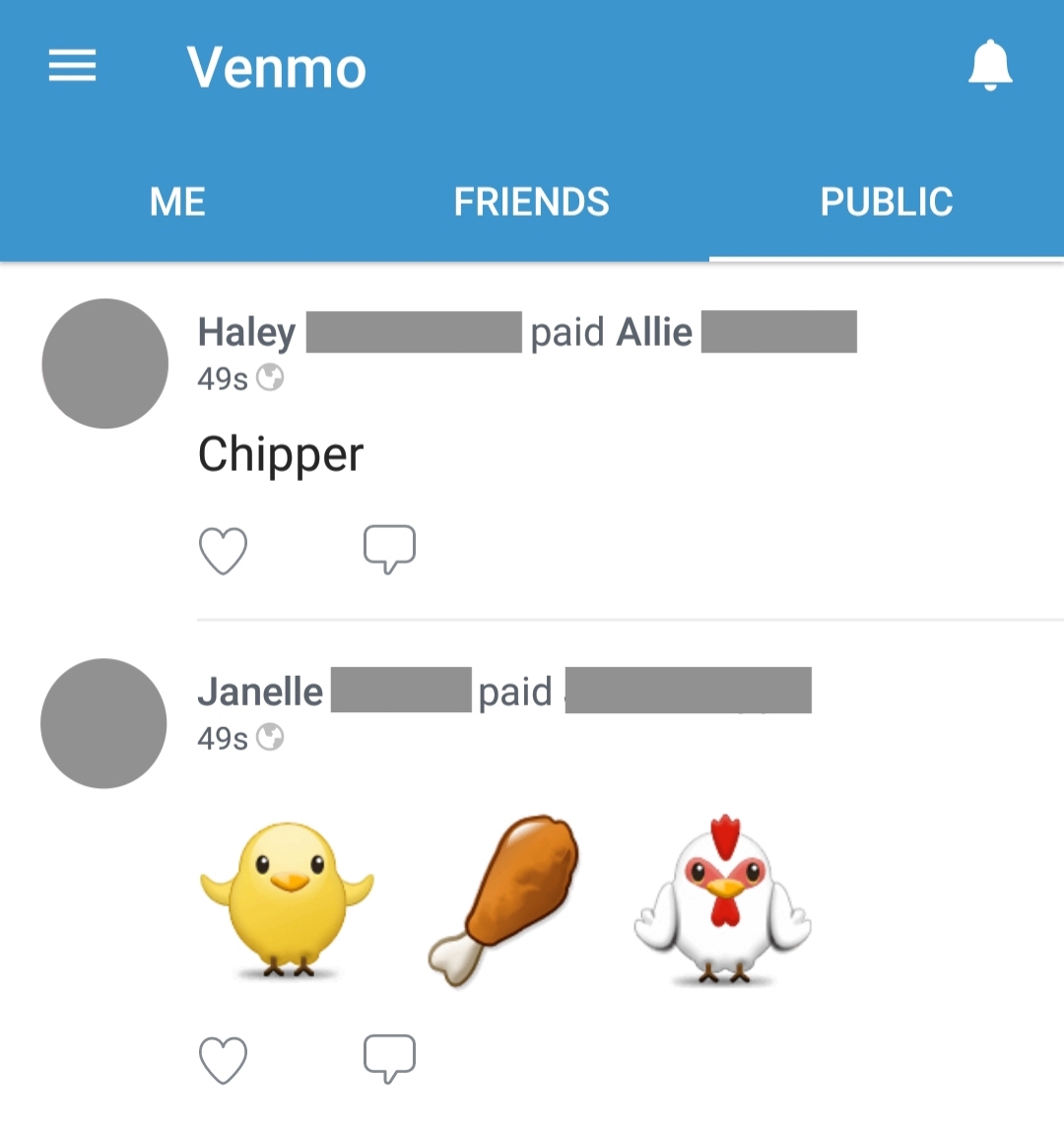“I’ll just Venmo you”
What is Venmo?
Venmo is an app that allows users to send money electronically to other people. The service is owned and operated by PayPal.
How does it work?
Users add their bank account information to their Venmo account during sign-up. Once the information is verified they can send and receive money from anyone on the app with a few taps.
For each payment or request the user has the option to write a short memo about the transaction. By default these memos are made “public” (visible to anyone on or off Venmo), but for each transaction users can also make the payment “private” (only visible to the person sending the money and the person receiving it) or “friends only” (visible to only their Venmo friends).

Venmo allows users to search or “friend” other people on the app, although they do not have to be friends with another user to send them money. Once two users are friends they can see each others public and “friends only” transactions in their feed.
Money received in Venmo accrues to a “balance” on the users account which can either be used within the app or transferred to their bank account. The transfer is free when using a bank account or debit card, but does take a few days to clear.
How do teens use it?
As carrying cash becomes increasingly less common, Venmo allows teens and young adults to easily split expenses for things like sharing meals, paying utilities, or buying tickets. It removes the need for friends to pay each other back with exact change, or keep detailed notes of who owes who what amount when planning an outing.

Venmo also has a social aspect. Users can see their friends’ payments and “heart” or comment on them in the feed. Oftentimes transaction memos become a playful space for inside jokes and fun emojis. Some users have gotten highly creative with their own promotion, posting their “@username” handle in public places hoping to collect the serendipitous dollar.
What should parents know?
Users can make a Venmo account using their Facebook or email account, and a valid phone number. Venmo’s terms of service require users to be 18 years or older to sign up. If users are exchanging a high volume of money through the app, they may be asked to verify their identity with a Social Security number.
Funds are available to the recipient instantly, so teens (and all users) should be sure they’re sending money to the right person before completing the transaction. If they make a mistake they may not be able to get their money back. In the event of a lost or stolen phone they should revoke their phone’s access to Venmo right away, or their wallet may be at risk.
Make sure your children know that their “public” payments can be seen by anyone, even people without a Venmo account. They shouldn’t post or share their handle in public places, because their profile can have a lot of personal information in it.
As with all online communities, be sure to talk to them about what things are appropriate to say and share on the app. Let them know that if they have issues with another user, or feel uncomfortable for any reason, they should block that person and talk with you about it.














.svg)

